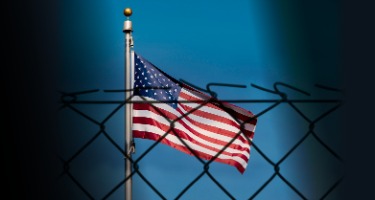For immigration attorneys who were buffeted by an extraordinary year and are now peering into a perilous unchartered future for themselves and their clients, this New Year needs more than routine reflection and the usual strategic planning.
2017 saw:
- Donald Trump’s Muslim travel ban cynically rolled out and justified by a thin national security veneer. The ABA Journal called the ban “a frequent flyer through the courts.”
- Pandering to his base, Trump pardoned former Maricopa County, Arizona, Sheriff Joe Arpaio, who had been convicted for criminal contempt by violating a court order to stop detaining people he suspected of being in the U.S. illegally.
- Trying to have it both ways, the president placated his base by terminating DACA but promised to support a permanent legislative fix. A fledgling bipartisan DACA deal between Trump and the congressional minority leadership fell prey to “bait and switch” tactics as the administration coupled the fate of over 700,000 Dreamers to “security” in general and funding for the great, beautiful “wall,” in particular.
- The president endorsed the RAISE Act. RAISE cuts legal immigration in half and limits family-based green cards to spouses and the minor children of U.S. citizens and lawful permanent residents and establishes a point-based quota system based on alleged “merit.”
Defying a century of legislative intent and U.S. immigration values, RAISE is fundamentally un-American. Although falling short, the historic core objectives of U.S. immigration policy are:
- reunification of families;
- bringing workers essential to our economy; and
- affording protection to the oppressed.
Trump is campaigning for an end to the annual immigrant diversity lottery and so-called “chain migration.” Branding family reunification as “chain migration” is too clever by half.
Shamefully, but sadly not surprisingly, Trump lashed onto the horrific October 30, 2017, New York City terrorist truck attack as the justification for ending the lottery. The suspect from Uzbekistan is one of hundreds of thousands of persons who became lawful permanent residents under the diversity lottery program. Debating the merits of the lottery is certainly a legitimate exercise, but witch hunts should have no place in our public discourse. One need not be xenophobic or pander to restrictionists to wonder if the 50,000 immigrant diversity visas might be better utilized by allocating them to chronically oversubscribed business- and family-based quota categories.
The lottery was established to encourage immigration from a broader variety of countries. It helps individuals who do not have close relationships with sponsoring family members or employers but may have other promising attributes that could benefit the country.
The fact that the administration has yet to pass immigration legislation does not diminish the impact of the changing of the guard. The following are among trends noted by The New York Times, The Intercept, and Migration Policy Institute:
- Reversal of the Obama-era emphasis on prosecutorial discretion: prioritizing resources to deport violent criminals, gang leaders, drug lords, terrorists, etc. Provisions in a Trump Executive Order make every person in the U.S. without legal documentation a priority for deportation.
- 11 percent of 2017 ICE arrests had no criminal history; 16 percent had only pending criminal charges
- Refugee resettlement reduced to a historic low: Obama’s refugee admission was set at 110,000 for FY 2017; Trump’s is 45,000 for FY 2018.
- Reversing a decades old procedure allowing remote processing by regional immigration service centers; mandatory in-person interviews are now required for business based “green cards.” Local USCIS offices were provided with scant resources to implement the requirement.
- Tourism to the U.S. dropped 4 percent during the first half of 2017.
- Termination of Temporary Protective Status (TPS) for citizens of Haiti, Nicaragua, Sudan, and, most recently, El Salvador. Honduras may follow.
- An average 7 percent downturn in enrollment of international students in U.S. colleges last fall. Moody’s Investors Services says many schools may face a dire outlook and downgraded bonds. Loss of critical revenue has resulted in some schools eliminating courses and staff (a loss of jobs to U.S. workers!).
This survey is far from exhaustive, and given the mercurial nature of the administration, it aspires to be nothing more than the proverbial fleeting snapshot from 30,000 feet. After a year, it is safe to assume that immigration will continue to be demonized by Donald Trump. Already noted is the irony of the GOP going MIA on family values. Equally noteworthy is the party of business’ failure to support policies that will ensure that the best and the brightest, entrepreneurs, investors, and essential workers from around the world can continue to come to the United States. The undermining of the H-1B program is but a single example. And as the U.S. approaches full employment, a shortage of vital workers will be detrimental to the economic growth the administration has promised.
-----------------
Jack Pinnix, a principal in the Raleigh firm Allen & Pinnix, P.A., is a North Carolina board-certified immigration specialist and a past-president and current board member of the American Immigration Lawyers Association. This article is not intended to reflect AILA policy. He has been listed in The Best Lawyers in America© since 1993.

































